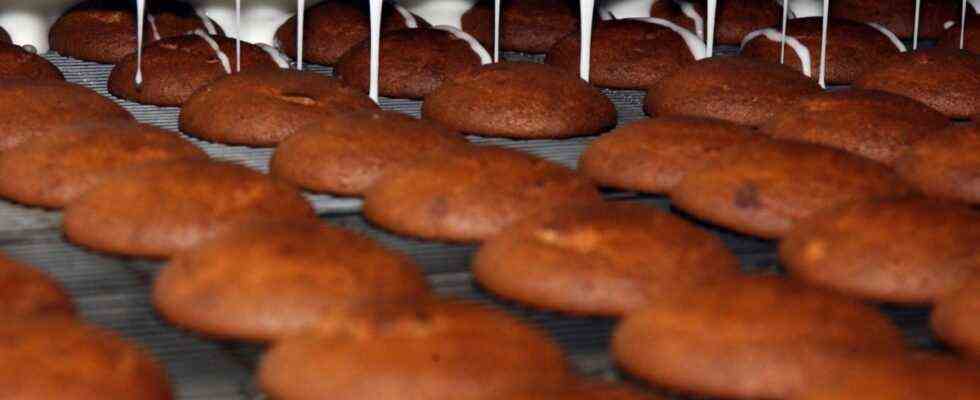Autumn has arrived, and if you want to express this time of year in a single smell, then you might think of leaves, mushrooms or pumpkin soup. But possibly also: of gingerbread cookies that have been on supermarket shelves again for a few weeks. Much to the annoyance of those people who would prefer to see the seasonal pastries offered for sale in Advent. “But I always say: The trade wouldn’t sell the products if the customer didn’t buy them,” replies Hermann Bühlbecker – and what else can he say: The 71-year-old owns the Lambertz company, the biggest autumn and Christmas baker Germany.
Bühlbecker has formed quite a empire out of the Aachen Printen factory: with gingerbread brands like Weiss or stollen bakers like Dr. Quendt from Dresden. But even though Bühlbecker has been in business for four decades, he thinks this season is extraordinary – above all: exceptionally expensive. “At the moment we have an accumulation of costs that I have never seen before,” says the entrepreneur. Its three most important raw materials chocolate, sugar and flour have become significantly more expensive. “There are also higher freight costs and energy prices.”
None of this bodes well for fans of unhealthy snacking. “At the moment we are selling at the prices that we agreed on at the beginning of the year,” says Bühlbecker, although they are not yet giving out any prices for the next season. “But we already know that it will be significantly more expensive.” His consolation: Sweet pastries remain comparatively cheap in Germany, after all, you can still buy the “Hearts, Stars, Pretzels” pack for less than two euros. Thanks to the lively competition in the local food trade.
As far as the inflation of the Printen is concerned – one could almost speak of print inflation – Bühlbecker refers to the plastics market, for example. “We have to fight to get enough packaging,” says the Lambertz boss. Packaging was ordered in the spring for the planned sales. “But when you order over the pre-ordered quantities, it becomes difficult.”
In fact, the recovery of many national economies from the Corona crisis is sometimes blooming: International freight capacities are quite scarce, for example in airplanes. The pandemic temporarily paralyzed important ports, and several storms slowed the oil processing industry. Despite all the extra costs, Lambertz was also profitable in the end, says Bühlbecker.
Fewer conference cookies during the pandemic – but sweets went all the better in the supermarket
For the past fiscal year, which ended at the end of June, the company reports sales of 656 million euros, three percent more than in the previous year. Home office and travel restrictions made themselves felt: Lambertz was selling fewer pastry mixes, so-called conference biscuits, to congress hotels, for example, during the pandemic. In airport shops, too, fewer cookie chests were sold than souvenirs or souvenirs. But sweets in the supermarket went all the better. Bühlbecker interprets it like this: Especially in bitter times, people like to treat themselves to something sweet.
And after all, the days when pastry manufacturers were among the victims of international trade disputes are over. Two years ago, for example, the USA introduced a hefty 25 percent punitive tariff on sweet biscuit imports from the EU. The origin of all evil was the dispute over subsidies for the aircraft manufacturers Airbus and Boeing. But in the spring, both sides suspended corresponding punitive tariffs. “You are already happy these days when you can work under normal circumstances,” comments Bühlbecker humorously.
The company owner has also been Lambertz’s biggest advertising figure for decades: Bühlbecker gives away biscuit boxes to state guests on official occasions, and as honorary consul he represents the world’s largest cocoa producer Ivory Coast in Germany. In shopping channels like QVC, the entrepreneur sometimes appears himself to bring chests to the people.
While things are likely to be quieter in this regard in the future, another question for the future seems to have been clarified for Bühlbecker: “We have always remained a family company, despite some tempting offers,” says the father of a daughter. “And the goal remains to keep the company completely in the family.”

